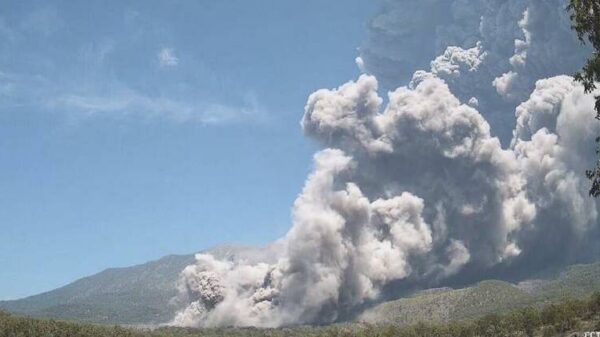United States President Donald Trump has initiated plans to develop the country’s seabed mining industry, aiming to secure a supply of critical minerals necessary for various industries while reducing reliance on China. This push has triggered significant backlash from international organizations and environmental advocates concerned about the potential environmental impacts of seabed mining.
The International Seabed Authority (ISA), established in 1982 under the United Nations Convention on the Law of the Sea (UNCLOS), plays a crucial role in regulating activities related to the deep seabed. As of 2024, the ISA includes 170 members, comprising 169 member states and the European Union, but notably excludes the United States, which has not ratified the Law of the Sea treaty. Recently, there has been increasing pressure on the ISA to create regulations governing the commercial extraction of seabed minerals, with a growing number of countries advocating for a moratorium on such activities.
In light of escalating global demand for critical minerals, several nations are exploring seabed mining. For instance, Norway proposed a plan to evaluate the feasibility of deep-sea mining for minerals; however, this initiative faced opposition from the country’s Socialist Left Party, resulting in a halt unless a licensing round set for 2025 was canceled due to environmental concerns. Meanwhile, several Pacific Island nations, which depend heavily on the health of the oceans, are actively working to protect their marine environments to ensure their survival.
Despite this global context, President Trump remains resolute in advancing seabed mining initiatives in U.S. waters. In April, he signed an executive order aimed at “Unleashing America’s Offshore Critical Minerals and Resources.” The order emphasizes the need for immediate action to develop seabed mineral resources responsibly, quantify the nation’s mineral endowment, and secure supply chains for defense, infrastructure, and energy sectors.
Following the executive order, The Metals Company (TMC) submitted applications to the National Oceanic and Atmospheric Administration (NOAA) for two exploration licenses and one commercial recovery permit in the Clarion Clipperton Zone, an area of the Pacific Ocean managed by the ISA under the Deep Seabed Hard Mineral Resources Act (DSHMRA). However, this zone is designated as an environmental management area, raising further concerns about the legality and environmental ramifications of TMC’s plans.
In response to Trump’s initiative, Leticia Reis de Carvalho, Secretary-General of the ISA, expressed serious concerns regarding the executive order, stating that it raises issues related to international law and governance in ocean management. She emphasized that UNCLOS clearly stipulates that “no state may claim, acquire, or exercise sovereignty or sovereign rights over any part of the area or its mineral resources.” This assertion highlights the tension between national interests and international obligations.
The response from the international community has been swift and critical. Several international organizations and environmental groups have rallied against Trump’s seabed mining ambitions. Furthermore, TMC’s international partners are beginning to question their affiliations with the company due to apprehensions over the legality of its operations. Many experts argue that undertaking mining activities in areas beyond a country’s territorial waters could violate international law and undermine the principle of “common heritage of mankind” unless a consensus on seabed mining management is reached among nations.
This week, delegates from the ISA convened at their headquarters in Kingston, Jamaica, to address the implications of Trump’s mining plans. During this meeting, the council, consisting of 36 elected member states, passed a resolution urging its legal and technical committee to investigate potential noncompliance by member states regarding seabed mining regulations.
Matthew Gianni, co-founder of the Deep-Sea Conservation Coalition, who participated in the ISA discussions, remarked that TMC has been “testing the limits” of what it can pursue, likening it to a child pushing boundaries. He further noted that the ISA member countries have sent a clear warning to TMC: if the company continues on this path, it risks losing its exploration claims. This serves as a cautionary tale for other companies considering similar ventures.
As the situation unfolds, it remains unclear whether President Trump will proceed with the seabed mining plans or if his administration will approve TMC’s mining licenses. Nevertheless, the international community has firmly expressed its opposition to U.S. initiatives aimed at commencing deep-sea mining operations before establishing comprehensive international regulations, citing the potential for severe and lasting damage to marine ecosystems.





































































